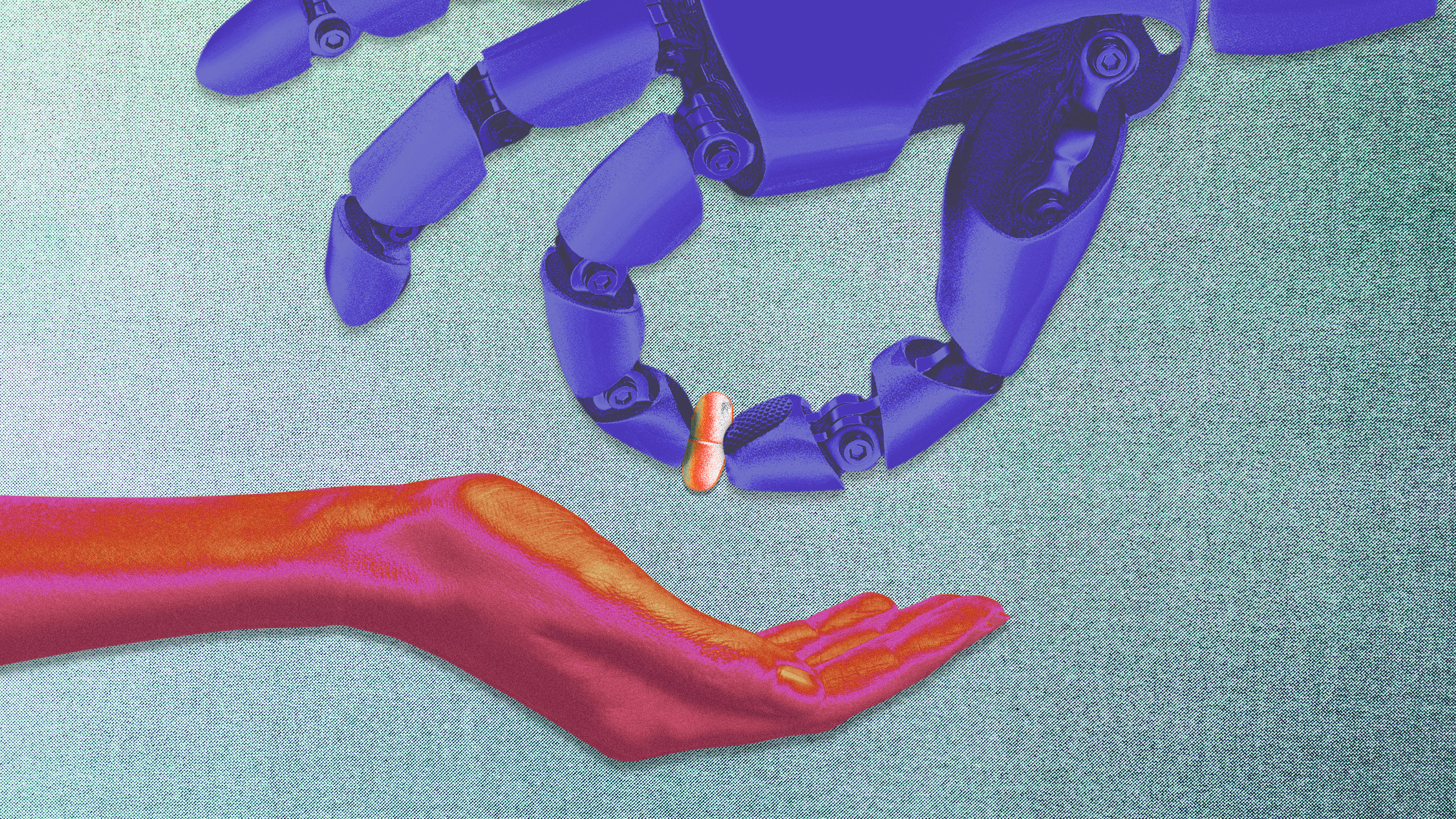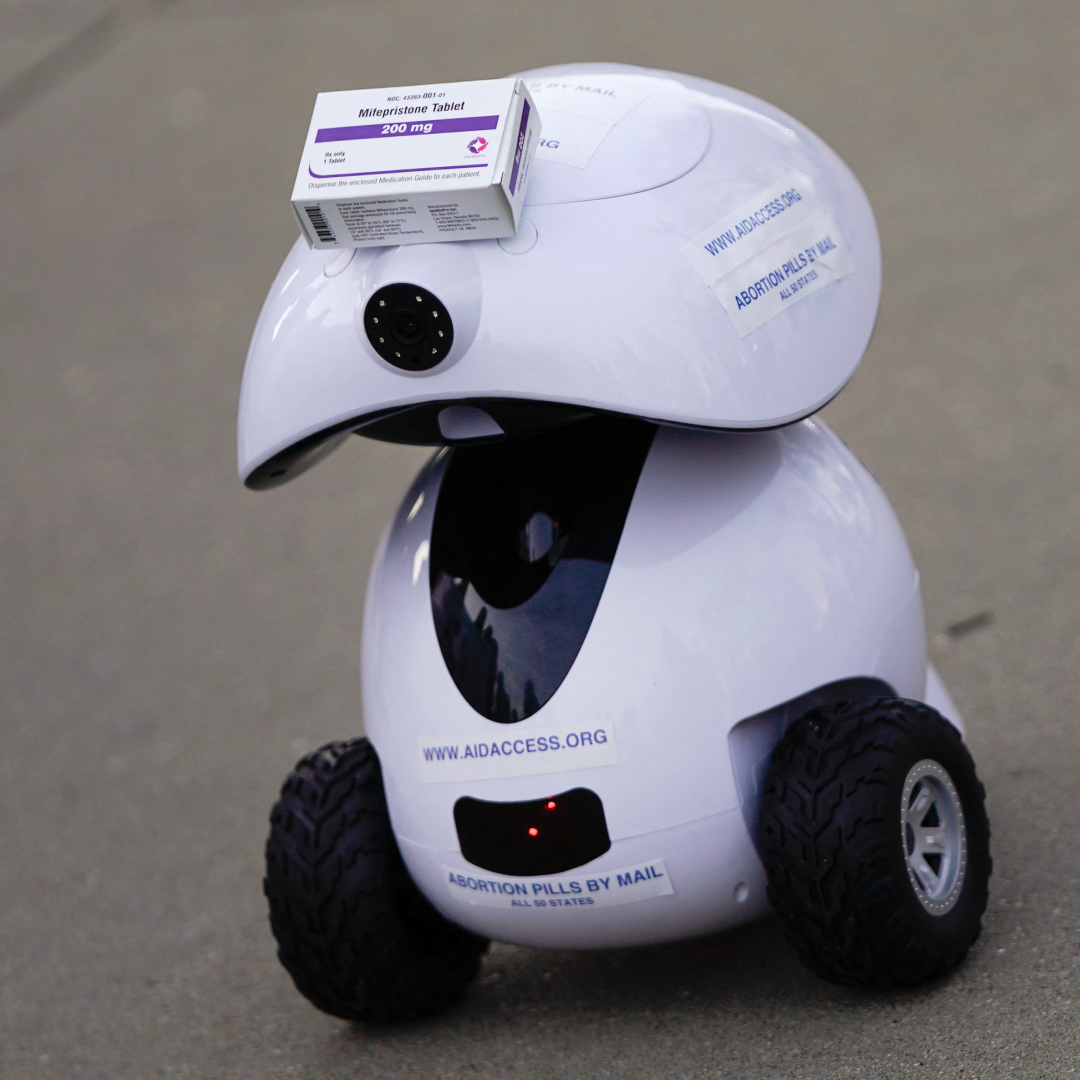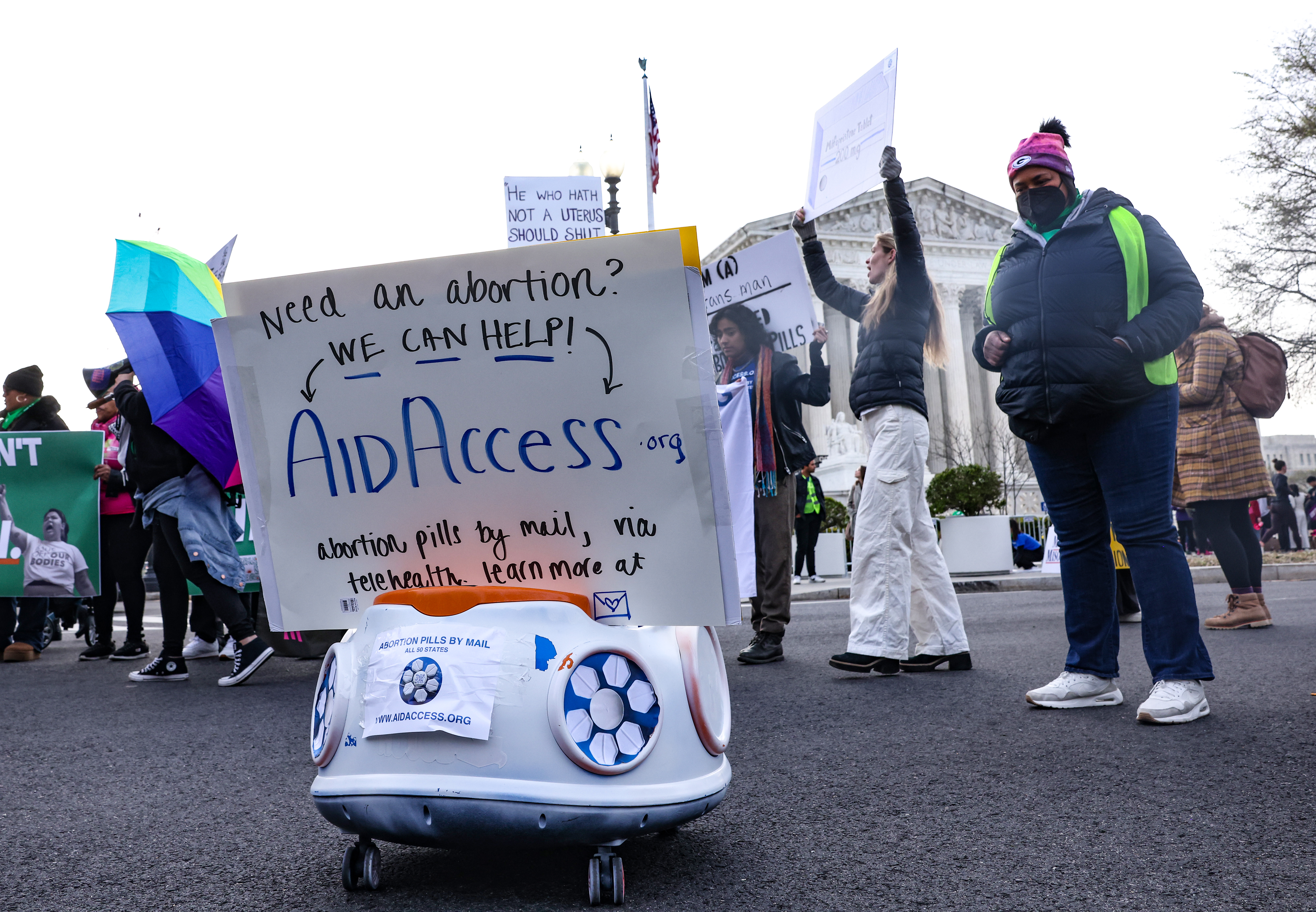Are "Roe-Bots" the Future of Abortion Access?
As the Supreme Court heard arguments in a case that could severely curtail medication abortion nationwide, one organization showed that reproductive healthcare is here to stay—no matter what.


Today, the Supreme Court heard oral arguments in FDA v. Alliance for Hippocratic Medicine, the case challenging the FDA’s approval for expanded use of mifepristone, one of two medications commonly used to end unwanted pregnancies and treat miscarriages.
The decision—which is expected in June—could put access to the "abortion pill" in jeopardy. A method that many people rely on for reproductive healthcare: A recent study published in JAMA found that nearly 28,000 additional medication abortion pills intended for self-managed abortion use were issued in the six months following the end of Roe v Wade.
But as the Justices listened to arguments, workers and volunteers for Aid Access, a non-profit organization that provides access to medication abortion by mail, deployed so-called "roe-bots" to dispense mifepristone outside the Supreme Court. The robots were operated remotely by Aid Access providers residing in "shield law states," where they are legally protected from anti-abortion laws.

A "roe-bot" carries a box of mifepristone during a rally in front of the U.S. Supreme Court on March 26, 2024, in Washington, D.C.
"The main point of the robots, in addition to calling attention to the shield laws and legal loopholes we can leverage, is that it literally does not matter what happens at the Supreme Court or in the future: We will get people the care they need," says Mira Michels, researcher and volunteer at Aid Access. "We don't ever want people to feel alone. It is extremely scary to realize you have an unwanted pregnancy. We just want people to know that by robot, in-person, mail—it doesn't matter—we will be there."
Based on Tuesday's arguments, the Court appeared "skeptical" of the case levied against the FDA (largely that mifepristone is unsafe and has not been properly studied), according to observers.
As Joyce Vance, former federal prosecutor and MSNBC legal analyst, wrote on X: "the Mifepristone case looks like it will be dismissed on legal grounds, no standing, as it should be." Adds Nancy Cárdenas Peña, director of the Abortion On Our Own Terms campaign: "This case should never have made it this far—mifepristone has been on the market for over 20 years and has been used by millions of Americans. My sincere hope is that the Supreme Court will follow the science and decades of evidence, instead of advancing a political agenda that aims to ban abortion nationwide."

A "roe-bot" at the "Bans Off Our Mifepristone" action organized by the Woman's March outside of the Supreme Court.
But if the Supreme Court does decide to ban mifepristone or adds barriers to access it—while it will "certainly make it more challenging" and "increase the legal risks" for those who need the abortion pill, according to Cárdenas Peña—those in the movement are ready to step in and help.
"What will be important is that anyone considering self-managing with pills has the information and resources they need," Cárdenas Peña adds. People can call or visit If/When/How’s free Repro Legal Helpline for legal advice, get medical support from the Miscarriage and Abortion Hotline, and logistical support from Reprocare.
Get exclusive access to fashion and beauty trends, hot-off-the-press celebrity news, and more.
"There is an incredible legacy of women and people who've made this work happen and will continue to make this work happen," Michels says, adding that Aid Access has lowered the cost of medication abortion, provides additional aid to those in need, queer- and trans-inclusive care and even offers what is known as "advanced provision of abortion care," meaning people can obtain the pills whether or not they're currently pregnant. "I guarantee you, me and other volunteers and so many people I've met today are going to work tirelessly to make sure that, no matter what, abortion care will always be there."

Danielle Campoamor is Marie Claire's weekend editor covering all things news, celebrity, politics, culture, live events, and more. In addition, she is an award-winning freelance writer and former NBC journalist with over a decade of digital media experience covering mental health, reproductive justice, abortion access, maternal mortality, gun violence, climate change, politics, celebrity news, culture, online trends, wellness, gender-based violence and other feminist issues. You can find her work in The New York Times, Washington Post, TIME, New York Magazine, CNN, MSNBC, NBC, TODAY, Vogue, Vanity Fair, Harper's Bazaar, Marie Claire, InStyle, Playboy, Teen Vogue, Glamour, The Daily Beast, Mother Jones, Prism, Newsweek, Slate, HuffPost and more. She currently lives in Brooklyn, New York with her husband and their two feral sons. When she is not writing, editing or doom scrolling she enjoys reading, cooking, debating current events and politics, traveling to Seattle to see her dear friends and losing Pokémon battles against her ruthless offspring. You can find her on X, Instagram, Threads, Facebook and all the places.